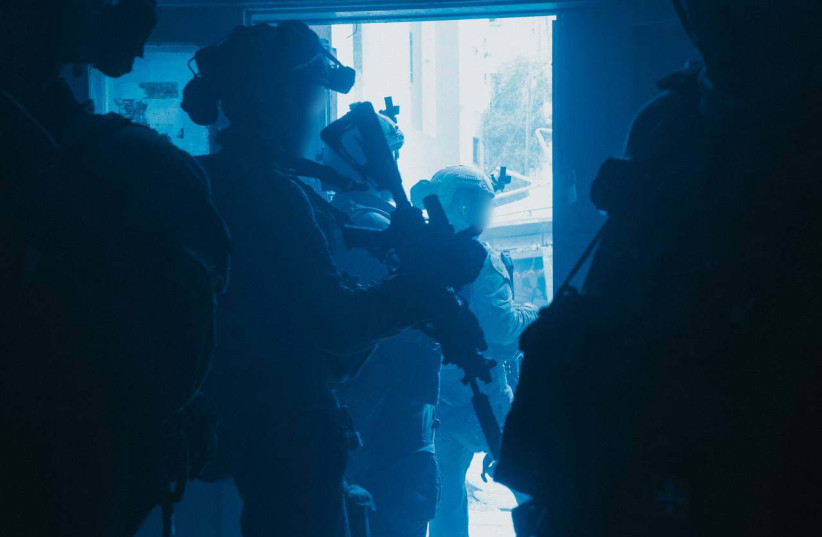Israel and the IDF have managed some impressive tactical wins that could turn into strategic wins. But so far, it is still an open question, and each of the tactical wins might end up being strategic losses.
The IDF achieved operational control of northern Gaza by early January and of southern and central Gaza (other than Rafah and a small section in central Gaza) by February; publicly, these were “wins.”
But even before that, by mid-November, the IDF had taken over the core parts of Gaza City, including key Hamas command centers at Shifa Hospital and its chief military headquarters.
During one of my visits to Gaza, I saw up close the control the IDF had over Shifa, with barely any resistance.
By mid-December, there had been a steep drop in rocket fire, as the IDF stormed into southern and central Gaza.

Since mid-January, the rocket fire has been a trickle, with long stretches of days of no rockets at all. But the rockets have resumed somewhat in recent days.
Around half of the southern border residents followed the IDF and government encouragement to return to their homes. But to what? Ongoing occasional rocket fire, even after an invasion supposed to grant them some quiet?
Do people think that the rest will return to the South when they hear fear and frustrations from their neighbors who preceded them?
The IDF was forced this week to conduct a second operation in Shifa, killing 90 Hamas terrorists and arresting 160 suspects who have been sent for further interrogation.
Although the IDF seems to say that each time Hamas manages to fire rockets, the terrorist cell in question has been eliminated, and each time Hamas reconstitutes itself, like at Shifa, the IDF comes back in to crush it, can we call this strategic progress?
If the latest rocket fire and Shifa are Hamas’s true last attempts to regain its standing, and sometime soon its threat will start to collapse, then a true strategic shift is starting.
But if the IDF cannot stop the rocket fire permanently, and if Hamas returns to Shifa a third time, even if it is several months from now, or manages to fire again and rebuild its forces to reach 100 to 200 fighters, then the message will be that “operational control” does not stop rocket fire nor stop Hamas from remaining the dominant power in Gaza.
The IDF would remain more powerful than Hamas in any direct straight fight, but how long will it be before the world, and Israeli society, tire of a new “forever war” with such costly casualties?
If we follow statements by the government and top IDF brass, the “main war” was to end in mid-January, and the low-intensity insurgency was supposed to be done sometime between mid-April and mid-September.
Who should Israel hand Gaza to after the war?
But if rockets keep raining down and Hamas keeps rallying, and if Israel still has no plan for who to hand Gaza over to, what will be the point when the general public decides that “absolute victory,” or even victory without rockets, is not achievable and “cuts its losses?”
This debate gets complicated by a likely 40- to 45-day hostage deal when it comes, along with a temporary ceasefire. This would mean no rocket fire for about six weeks, but there are no indications that Hamas is willing to give up its rule.
This would mean no rocket fire for a month-and-a-half (and a return of some dozens of hostages), but there are no indications that Hamas is willing to give up its rule in Gaza.
Does that mean that if Israel does not agree to Hamas’s terms at the end of the temporary pause, then despite the IDF’s “operational control,” Israel will receive a spike in rocket fire if and when the deal falls apart?
Won’t Hamas be able to maintain its rocket fire longer, and won’t it be able to stage more fights after it has had 40-45 days to recover?
Also, why would any third party seriously consider entering Gaza to try to manage it more peacefully, when they know Hamas has not been removed and has assassinated the heads of local Gazan clans who would dare to talk to Israel?
There is no question about some Israeli achievements: Hamas will not be able to invade Israel again for a while; it also will not be able to threaten to fire large numbers of rockets at Israel for the foreseeable future.
But absent: a) ending the rocket fire completely within a reasonable amount of time; b) creating a trend and momentum in which Hamas can no longer quickly reconstitute large forces and is limited to small uncoordinated cells of terrorists; and c) developing a third party that successfully replaces Hamas in food distribution, internal law and order, and rebuilding of Gazan society (including rooting out Hamas leadership) – Israel, unfortunately, may still manage to snatch defeat from the jaws of victory.
